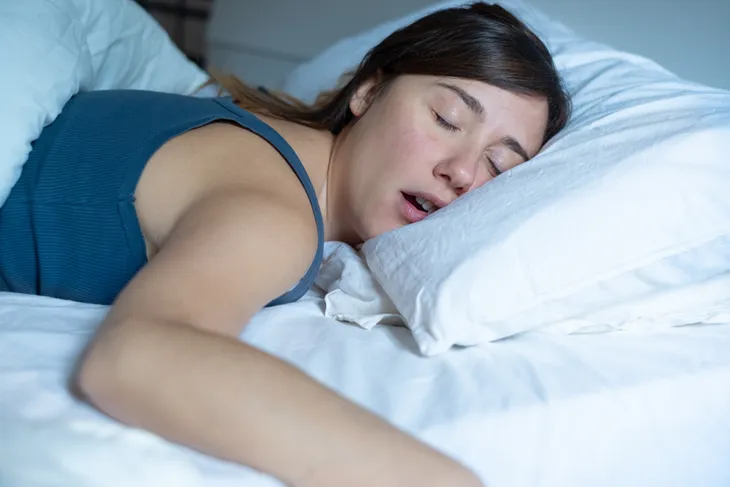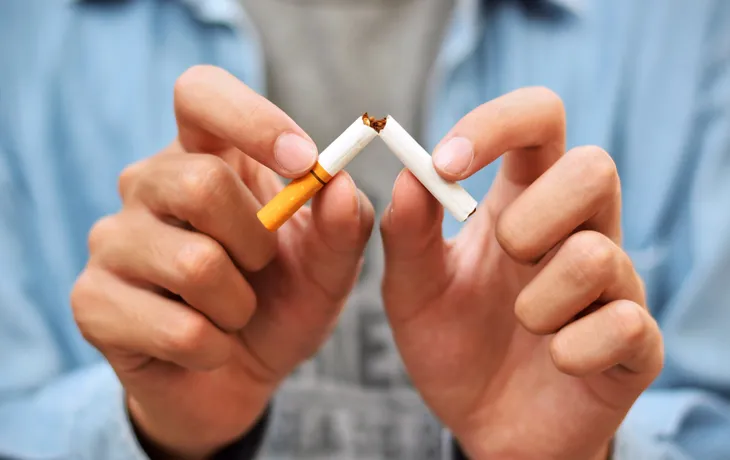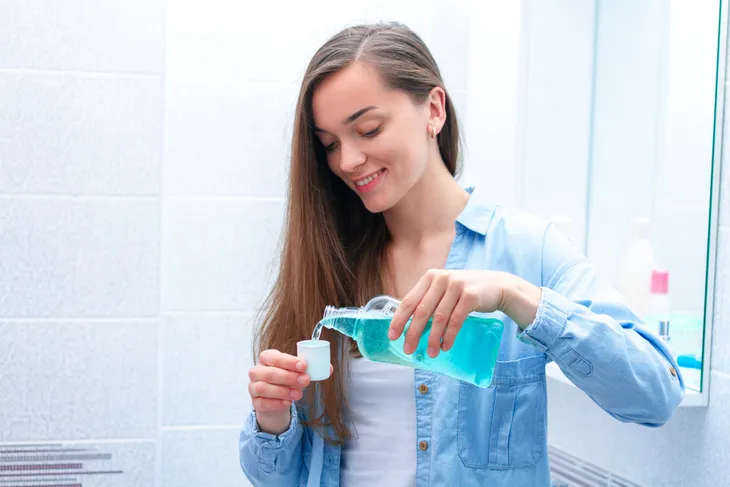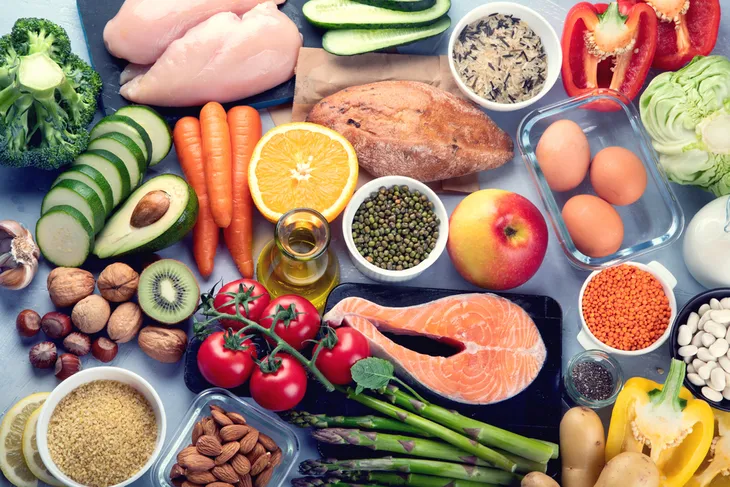- Bad breath is a common condition that can be embarrassing, but it can also be a sign of poor oral hygiene or habits.
- Sometimes bad breath is caused by something you ate, but several other lifestyle habits can also cause it.
- In many cases, lifestyle tweaks can take care of bad breath. Although seeing a dentist twice a year is still recommended.
Worried about bad breath? You’re not alone. Bad breath, also known as halitosis or oral malodor, is a common condition. As a matter of fact, more than 80 million people have chronic bad breath, according to the Academy of General Dentistry (AGD).
There are several causes of bad breath, including habits, certain foods, and even medications. Let’s take a closer look at common causes and what to do about them.
Not Brushing and Flossing Enough
Poor oral hygiene is a common cause of bad breath. When you don’t clean your teeth regularly, lingering food particles and bacteria can lead to plaque. The same goes for your tongue, which can also trap food particles and bacteria.
While it may be tempting to slack off occasionally, thoroughly cleaning your entire mouth is essential. In fact, the American Dental Association (ADA) recommends brushing teeth twice a day and flossing once. That way, odor-causing bacteria don’t get a chance to stick around.
Too Much Coffee
If you start your day with a strong cup of coffee and then go back for more throughout the day, then you may be familiar with coffee breath. Healthline says coffee can cause bad breath not only because it contains sulfuric and acidic compounds but also because it inhibits saliva production.
Fortunately, that doesn’t mean you have to give up coffee. Instead, Healthline recommends modifying your routine. The source says following up coffee with a glass of water or sugar-free gum can help.
Mouth Breathing
Since breathing through your mouth dries out saliva, USA Today says the habit can make your mouth a “breeding ground for bacteria.” When you don’t have enough saliva, it’s harder for your mouth to wash away food particles and bacteria naturally.
Saliva contains antimicrobial agents that help eliminate bacteria, according to Delta Dental. So, a lack of saliva can lead to dry mouth and stale breath. That’s also why morning breath is a common issue for people who sleep with their mouths open.
Not Drinking Enough Water
Similarly, dehydration can cause dry mouth. Since water helps stimulate saliva production and rinse out food particles, it helps prevent a build-up of bacteria. As a result, drinking water can help combat bad breath.
In fact, research shows drinking a glass of water can help eliminate up to 60-percent of substances responsible for foul breath. So, how much water should you drink a day? Everyone’s needs vary, but generally, the Mayo Clinic says eight glasses a day is a reasonable goal.
Skipping Meals
This one may seem counterintuitive, but believe it or not, skipping meals can cause bad breath. “When you begin chewing, glands in your mouth and throat begin to secrete saliva,” according to University Hospitals. So, eating is a way to trigger saliva production.
For that reason, regularly skipping meals can contribute to bad breath. One thing to keep in mind: After you eat, make sure you wait long enough to brush your teeth. The ADA recommends waiting at least 60-minutes. In the meantime, water and sugarless gum can help clean out your mouth.
Too Much Alcohol
While the occasional glass of wine or beer might be fine, the more alcohol you drink, the more likely it is to cause bad breath. Similar to coffee, alcohol can cause a decrease in saliva production. When there isn’t enough saliva flowing, bad breath-causing bacteria can prosper.
Additionally, research shows excessive alcohol consumption “is bad for maintaining a healthy balance of microbes in the mouth.” In other words, the study found that alcohol can mess with the balance of good versus bad bacteria by reducing “good bacteria” and allowing “potentially harmful bacteria to flourish.”
Flavorful Food
Certain foods have a reputation for causing bad breath. Take garlic and onions, for example. According to Healthline, both contain sulfur compounds that give them their distinctive flavors. But when chewed and then digested, they release gasses that mix with bacteria in your mouth which can cause bad breath.
Garlic and onions aren’t the only common culprits of bad breath. Cooking Light says foods like tomato sauce and citrus fruits create an acidic environment that can help bacteria thrive. The source says horseradish, cheese, and peanut butter can also cause bad breath.
Smoking
If you need another reason to quit smoking, then you can add bad breath to the list. Not only can it leave your mouth smelling like an ashtray, but smoking can also affect saliva production. The ADA says smoking can cause dry mouth, worsening the effect smoking already has on your breath.
We understand that quitting can be a challenge. So, if you need help with the transition, talk to your doctor. They can help you with a treatment plan and may be able to recommend a support group.
Too Much Mouthwash
Mouthwash is a double-edged sword. While mouthwash can help reduce odor-causing bacteria, ABC News says it can also cause dry mouth. Since many antiseptic and antibacterial mouthwashes contain alcohol, they can end up inhibiting saliva production.
So, it’s important not to overuse mouthwash. Healthline recommends cutting back on mouthwash if you experience dry mouth, persistent canker sores, or sensitivity after using it. ABC News also suggests using an alcohol-free mouthwash. In short: mouthwash can help but don’t overdo it.
A Low-Carb Diet
Did you know that diets low in carbohydrates can lead to bad breath? When your body doesn’t get enough carbs, it can cause changes to your metabolism that can affect your breath. WebMD says this is because certain chemicals are “released in the breath as the body burns fat.”
These chemicals are called ketones and can get into saliva when the body is in the fat-burning state of ketosis. Since this is a metabolic cause of bad breath, not an oral hygiene problem, talk to your doctor about potentially changing your diet.
Certain Medications
Unlike many habits, you probably don’t have much control over which medications you need to take. But it’s good to keep in mind that certain medications can cause bad breath. As a matter of fact, the ADA says dry mouth is a side effect of more than 500 medications.
A variety of medications, including antihistamines and pain relievers, can cause dry mouth. So, if you take any medications, talk to your dentist. They can make recommendations to help relieve dry mouth and combat bad breath.
Skipping Regular Dental Checkups
When you don’t see a dentist regularly, your overall oral health can suffer. During routine checkups, dentists can spot problems that may be causing bad breath. For instance, dentists can diagnose and treat issues like periodontal disease and dry mouth.
WebMD says it’s a good rule of thumb to visit the dentist twice a year. So, if you aren’t already in the habit of regularly visiting your dentist, be sure to talk with your dentist about making an appointment.















